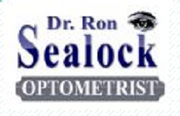
Once people reach adulthood, their vision tends to stay the same until they reach their 40s and beyond. If you’re an older adult considering switching to contact lenses, you may wonder if they’re suitable for seniors with age-related vision problems. The guide below explains how age affects your vision and what kinds of contact lenses might help.
How Does Vision Change as You Age?
As you get older, your eyes will go through some normal age-related changes. There is also an increased risk of age-related eye diseases, but this won’t happen for everyone. One condition that affects many adults over 40 is presbyopia.
This common age-related vision change occurs when the eye lens’s ability to change shape begins to deteriorate, making focusing on objects up close more difficult. Presbyopia continues to progress as you age. You may also experience dry eyes, loss of color perception, seeing “floaters,” or decreased pupil size.
Seniors are at a higher risk of certain eye diseases as well. Cataracts, the clouding of the eye’s lens causing blurred vision, is very common among adults aged 65 and over. Other major age-related diseases include macular degeneration, diabetic retinopathy, and glaucoma.
What Types of Contact Lenses Can Seniors Wear?

If you haven’t tried contact lenses in a long time or are new to them entirely, you might not be familiar with the advancements and variety of modern products. Today’s contacts make it possible for just about anyone to wear them. For example, seniors with dry eyes can benefit from lenses with high water content that retain moisture for longer, as well as scleral lenses, which cover the whole cornea.
Multifocal contact lenses are a great option for seniors with presbyopia. These correct both nearsightedness and farsightedness, and they can also help you see better at night.
You'll have the choice between hard and soft lenses as well. Hard lenses are durable, provide sharper vision, and allow oxygen to easily flow to the eyes. You might need more time to get accustomed to them, however, and they must be fitted correctly, or they can shift away from the center of your eye.
Most people use soft lenses. They are flexible, more comfortable, and easier to get used to. Compared to other designs, the kinds made with silicone hydrogel polymers have much better oxygen flow. They carry a higher risk of infection, but daily disposables significantly reduce the risk and relieve dry eye symptoms.
For comfortable contact lenses that accommodate your unique vision needs, turn to Dr. Ron Sealock. As the premier eye doctor of Dothan, AL, Dr. Sealock and his experienced team offer comprehensive eye care and vision services in a state-of-the-art facility. They are dedicated to treating eye conditions and diseases, improving your vision, and helping you choose the best eyewear option for you. Learn about your eyewear choices online. To schedule an appointment, call (334) 793-9607.
About the Business
Have a question? Ask the experts!
Send your question

